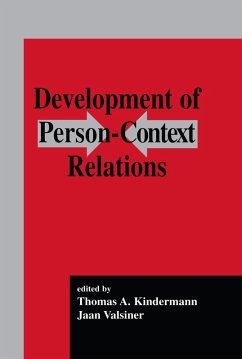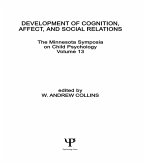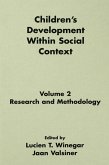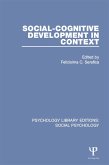Traditionally, developmental psychology has its focus on individuals. Developmentalists aim to describe regularities in individuals' change and development across time, to explain the processes and mechanisms that are involved in producing change and regularity, and eventually, to design strategies for optimization and modification of developmental pathways. Although the role of contexts has always been of central concern for these purposes, it is nevertheless quite surprising to note that compared to the effort devoted to individuals, relatively little attention has been paid to the study of the nature and organization of their contexts. This volume is an exploration of the idea that how we describe and explain human development will be closely tied to our understanding of what contexts are, how individuals and contexts become influential for one another, what contexts do to and with individuals, and how contexts and their influences change themselves across time. A major theme is whether the traditional dichotomy between individuals and their contexts may be artificial, perhaps culturally biased, and after psychologists have adhered to it for about a century, may have become an impediment to increasing our understanding of developmental processes. With this volume, the editors contribute a serious consideration of development and systematic change to emerging models of person-context relations, and provide suggestions about how it may be possible to incorporate these notions in developmental research and theorizing.
Dieser Download kann aus rechtlichen Gründen nur mit Rechnungsadresse in A, B, BG, CY, CZ, D, DK, EW, E, FIN, F, GR, HR, H, IRL, I, LT, L, LR, M, NL, PL, P, R, S, SLO, SK ausgeliefert werden.









